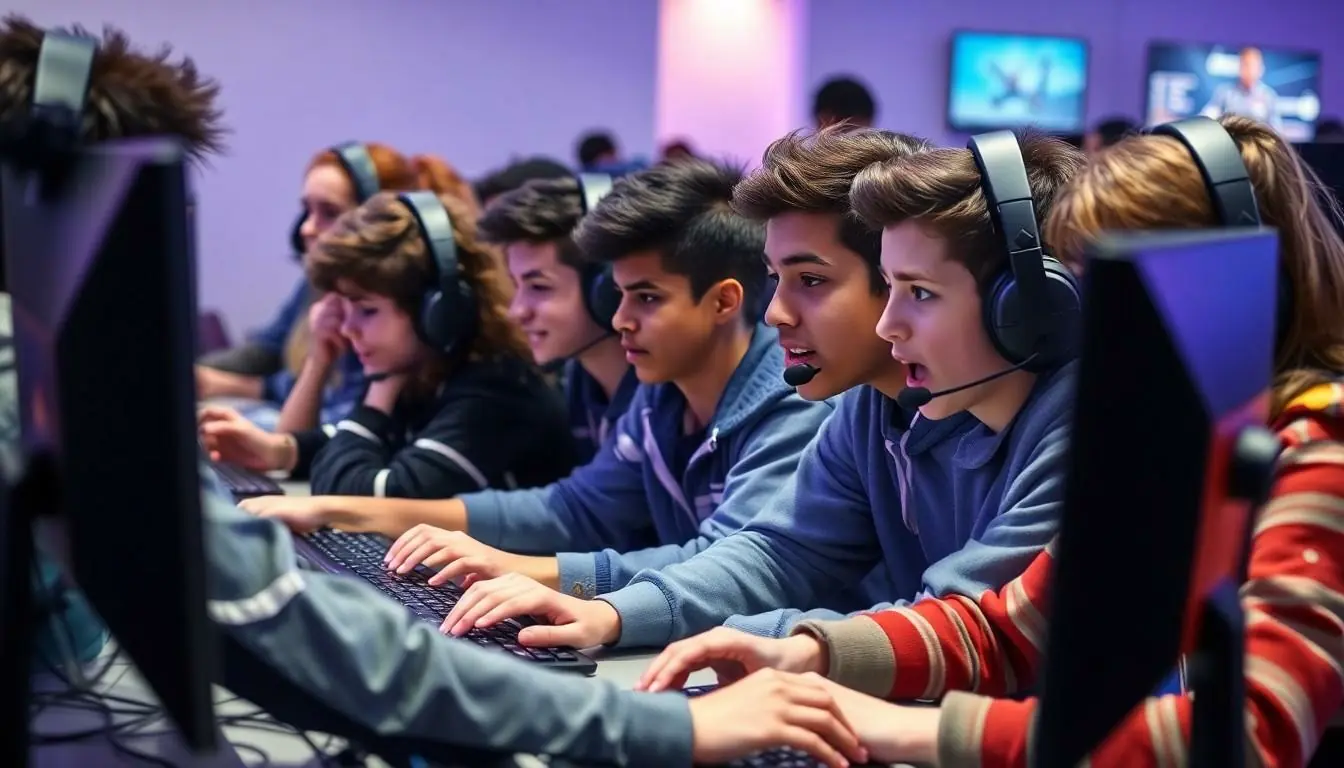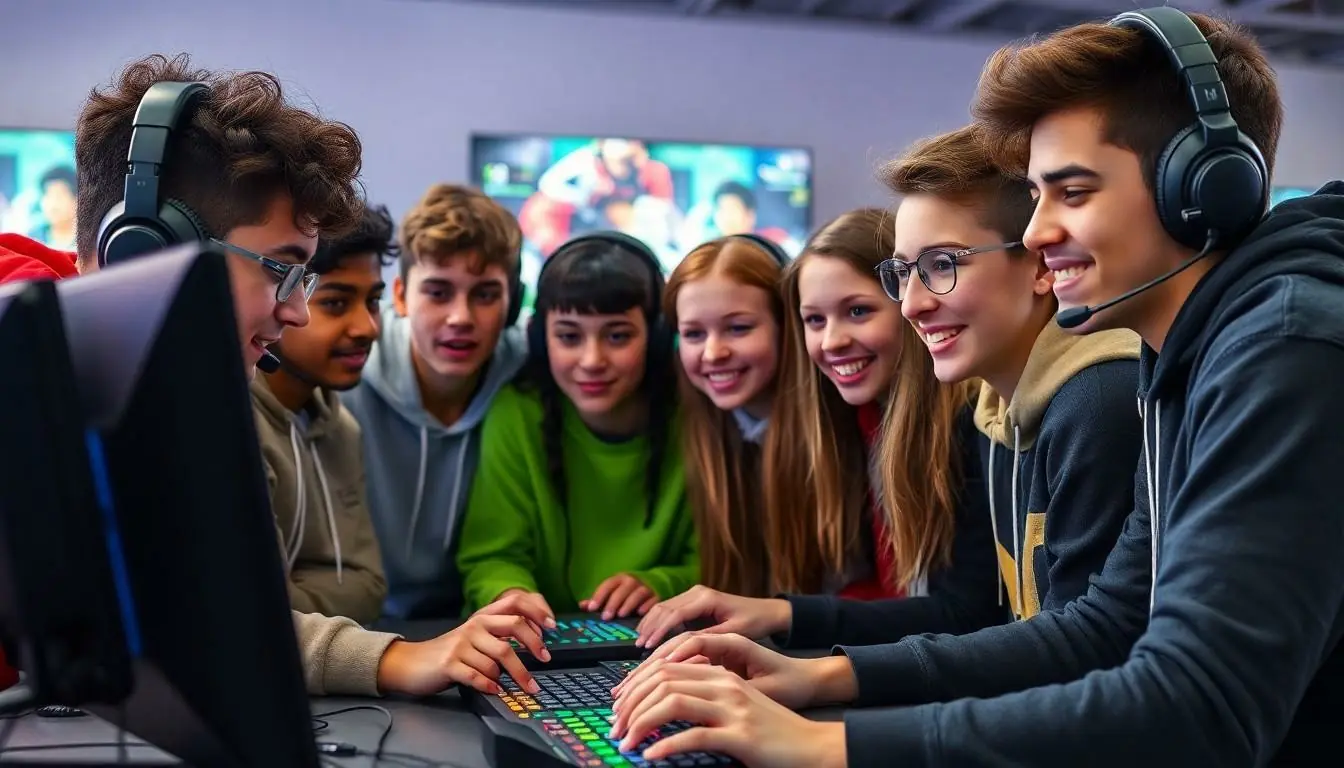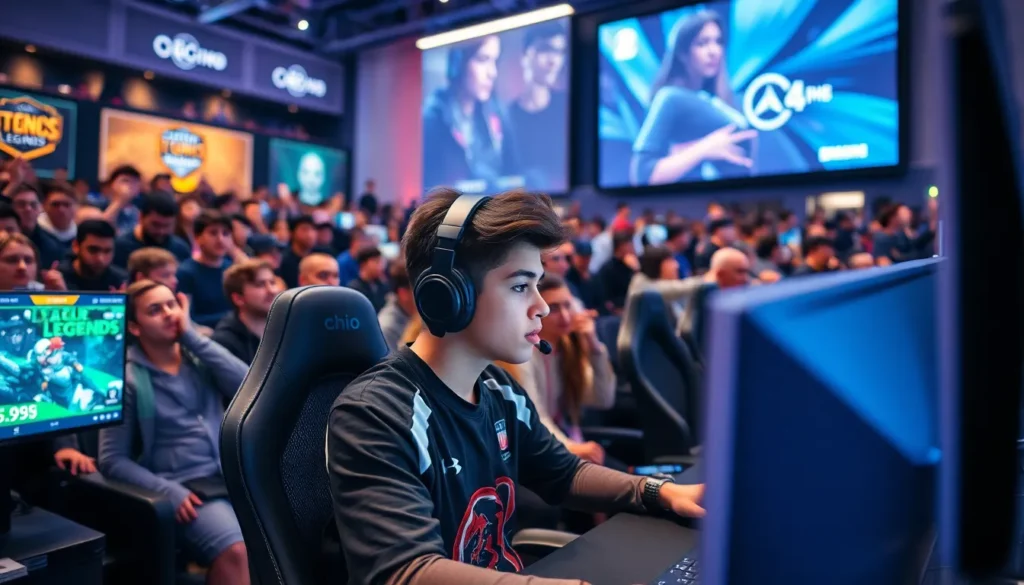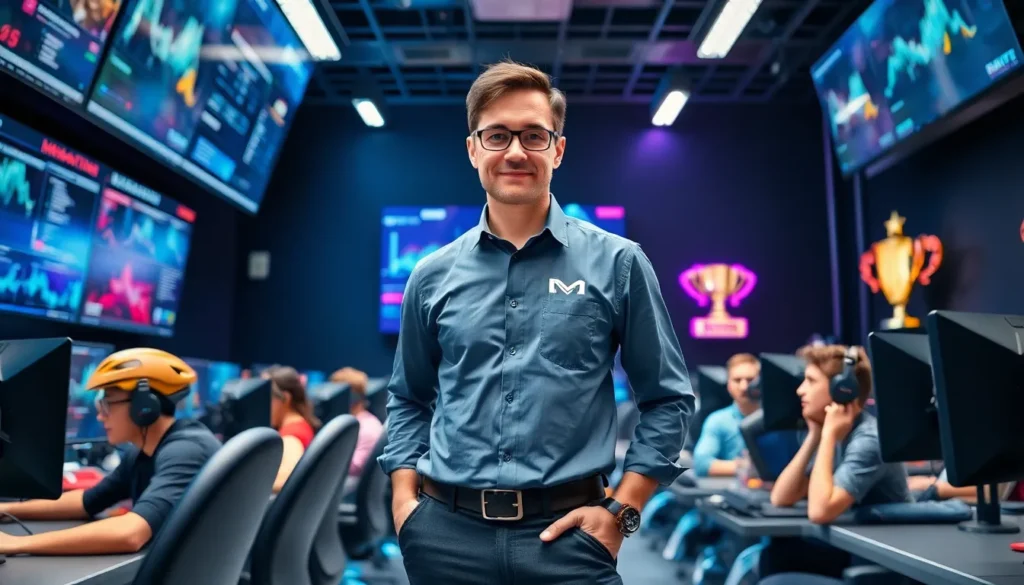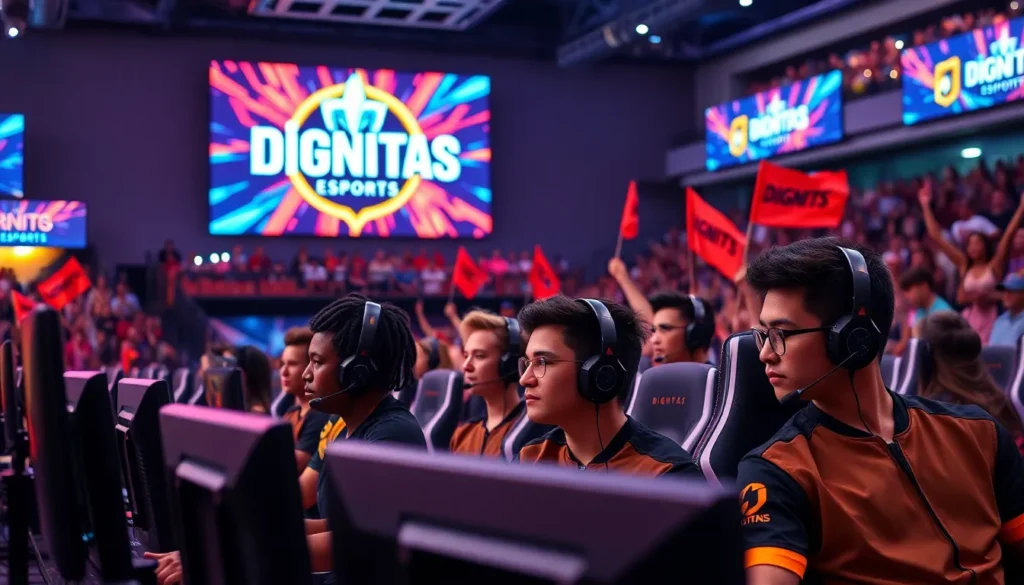Imagine a world where students trade in their textbooks for gaming consoles, battling it out in virtual arenas instead of the usual gym class. Welcome to the exciting realm of esports in schools, where competition meets collaboration and students develop skills that go far beyond the screen. It’s not just about fragging opponents or leveling up; it’s about teamwork, strategy, and maybe even a little bit of gaming-induced adrenaline.
As schools embrace this digital revolution, they’re discovering that esports can boost engagement and foster a sense of community. Picture students cheering for their team in a packed auditorium, just like a Friday night football game—only this time, the players are wielding controllers instead of helmets. With the right support, esports can transform the educational landscape, making learning as thrilling as a last-minute clutch play.
Table of Contents
ToggleOverview of Esports in Schools
Esports in schools represents a significant shift in educational engagement. Students participate in competitive gaming while developing essential skills. They learn teamwork, problem-solving, and strategic thinking through collaborative gameplay. Schools across the United States have begun incorporating esports into curricula, recognizing its educational potential.
Many institutions have established esports teams, providing students with opportunities to compete regionally and nationally. These teams often practice regularly, fostering a sense of community among participants. Coaches, usually teachers or volunteers, guide students, helping them refine their skills and understanding of the games.
Participation in esports also influences school culture. Events bring together students, fostering school spirit similar to traditional sports matches. Spectators support their teams, creating a vibrant atmosphere and reinforcing a sense of belonging.
Data indicates that around 80% of middle and high schools in the U.S. report interest in esports programs. Additionally, numerous colleges offer scholarships aimed at esports athletes, further validating students’ interests in this field. With proper infrastructure, esports can enhance student engagement and academic achievement.
Furthermore, esports initiatives often teach students about technology. Schools may integrate STEM subjects by discussing game design, coding, and digital graphics, directly linking to gaming experiences. This approach ensures that students gain practical knowledge alongside competitive opportunities.
Esports in schools is more than a trend. It’s reshaping how students interact with education. Engaging in gaming activities fosters a broader skill set, encouraging academic improvement and personal growth.
Benefits of Esports in Education
Esports in schools offers numerous advantages, shaping the educational landscape for students.
Skill Development
Students enhance critical skills through participation in esports. Problem-solving abilities flourish during fast-paced games requiring quick thinking. Strategy formulation becomes second nature as players develop tactics for winning matches. Not only that, but communication skills improve, as teamwork demands clear dialogue among teammates. Data shows engagement in esports fosters motivation, encouraging students to excel academically. Schools report observing increased interest in STEM subjects, as many esports programs intertwine aspects such as coding and game design, bridging competitive gameplay with practical knowledge.
Social Interaction
Esports serves as a platform for social interaction among students. Players often develop friendships that extend beyond the gaming environment. Collaborative gameplay fosters a sense of belonging, creating communities within schools. Events celebrating esports become arenas for camaraderie, allowing fans to support their teams just like traditional sports. Students of various backgrounds come together, breaking down social barriers through shared interests. Schools notice enhanced school spirit, promoting a more inclusive atmosphere where students feel connected and engaged. Community building remains a crucial element, making every gaming session an opportunity for relationship development.
Implementation Strategies
Implementing esports in schools requires thoughtful consideration of integrating gaming into existing academic structures. Schools can adopt various strategies to ensure a successful launch of esports programs.
Curriculum Integration
Curriculum integration involves aligning esports activities with academic goals. Subjects like math and science benefit from discussions on game design, coding, and digital graphics. Schools offering esports can incorporate modules that teach problem-solving and critical thinking through gameplay. Engaging students through competitive environments strengthens team collaboration and strategic planning. Teachers may develop specific lessons or units focused on STEM principles, linking gaming skills with academic learning outcomes. By ensuring that esports fits within the curriculum, educators enhance student engagement and retention across subjects.
Facility and Resource Requirements
Facility and resource requirements are crucial for establishing successful esports programs. Gaming spaces equipped with computers, consoles, and high-speed internet showcase the modern learning environment. Schools might consider repurposing existing media centers or classrooms for dedicated esports labs. Investment in quality hardware is essential; reliable equipment promotes fair competition and engagement. Additionally, administrators should provide access to streaming capabilities for live events and tournaments. Maintaining a stable network infrastructure supports seamless gameplay and reduces technical issues. By meeting these facility and resource needs, schools create inviting esports atmospheres that attract student participation and foster community spirit.
Challenges and Considerations
Esports in schools presents various challenges that require careful consideration. Addressing these concerns effectively ensures a successful implementation of esports programs.
Addressing Concerns
Criticism often revolves around potential negative impacts of gaming on student health and social interactions. Schools can counter these perceptions by promoting the positive aspects, such as teamwork and community building. Emphasizing the developmental benefits of participation in esports, such as improved problem-solving skills and strategic thinking, helps alleviate fears. Schools that provide clear guidelines and promote responsible gaming habits foster a healthy environment. Engaging parents and educators in discussions about the benefits of esports creates a supportive atmosphere.
Balancing Academics and Gaming
Balancing academics and gaming requires a thoughtful approach. Schools must establish schedules prioritizing academic commitments while integrating esports. Structuring a curriculum that incorporates gaming into subjects like math and science enhances relevance. Data shows that 80% of middle and high schools express interest in esports initiatives. By incorporating esports alongside academic goals, educators can harness student enthusiasm effectively. Encouraging a balance between gaming and academics ensures students excel in both areas. Schools that provide workshops on time management support students as they pursue their passions and academic responsibilities.
Case Studies of Successful Programs
Numerous schools demonstrate successful integration of esports within their curricula. For example, a high school in California launched an esports program that has led to increased student engagement and camaraderie. Students participate in weekly tournaments, which promote teamwork and strategic thinking while enhancing their problem-solving skills.
Another example comes from a North Carolina school where esports formed part of the after-school enrichment program. This initiative attracted over 120 students within its first year. The program incorporates STEM education by discussing fundamental aspects such as game design and coding, ensuring that students gain hands-on experience with relevant skills.
A notable achievement in Texas includes a school district that established an esports league. Through this league, students experienced competition alongside the development of critical social skills. With events that resemble traditional sporting matches, school spirit soared, and the atmosphere became vibrant and inclusive.
In Illinois, a middle school devised an innovative approach by balancing academics and gaming. Faculty members partnered with coaches to create a schedule prioritizing both esports and studies. This framework promotes effective time management and supports students in excelling academically while enjoying their gaming pursuits.
Across the U.S., data reveals that around 80% of middle and high schools show interest in implementing esports programs. Growing numbers of colleges now also recognize the merit of these programs, offering scholarships to talented gamers. This validation encourages students to engage further in their interests.
Schools that have adopted these programs report significant improvements in student attendance and participation. Students often cite increased motivation for STEM subjects, revealing how esports can inspire academic engagement. By fostering connections within the school community, esports programs change the educational environment, promoting inclusivity and collaboration.
Conclusion
Esports in schools is more than just a trend; it’s a transformative force reshaping education. By integrating competitive gaming into curricula, schools are not only enhancing student engagement but also fostering essential skills that extend beyond the classroom. The sense of community built through teamwork and collaboration is invaluable, creating an inclusive environment where every student can thrive.
As educational institutions continue to embrace this innovative approach, the potential for esports to contribute positively to academic performance and social interaction becomes increasingly clear. With proper support and resources, esports can revolutionize the learning experience, making it more dynamic and relevant to today’s students. The future of education may very well be intertwined with the world of esports, paving the way for a more connected and engaged generation.



